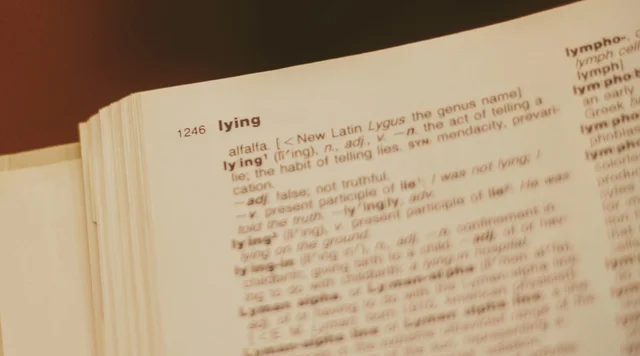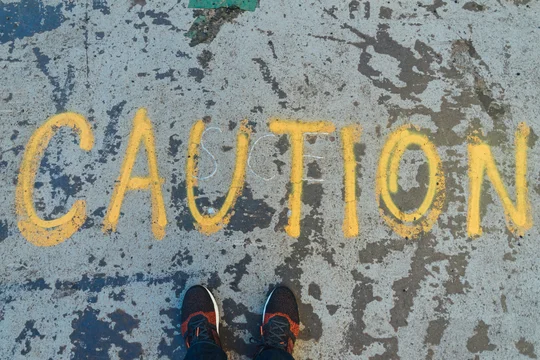
One question I've seen from time to time is "what should we bring to the hearing?" Not "how should we prepare," but what physical stuff should litigators bring on the day of a hearing or oral argument?
I thought it would be useful to post a checklist—both for you, our readers, and so that I can send it around in response to future questions.
The checklist below should be considered ideas for what to bring. Practiced litigators undoubtedly already have their own systems, and every hearing is different. You should not bring everything below to every hearing. This list is instead meant as a last-minute, "I'm about to head out the door, is there anything else I should bring?" checklist to spark ideas.
Note that this is geared towards oral argument in patent cases in the District of Delaware, but much of it is applicable to other kinds of hearings, and to trial.
Identification
To get through security, each person attending the hearing will need to present their driver's license or ID. For attorneys, remember to bring your state bar ID card so that you can use your electronic devices. The marshals usually accept printed copies of bar cards—but your mileage may vary.
Paper Documents
Here is a list of documents that you should typically bring paper copies of. Consider printing them double sided so they are less of a bear to transport.
Five Copies (or More)
- Demonstratives / Slides. If you are making a slide presentation, bring at least five printed, color copies with clear page numbers. Check these carefully before the hearing for printing defects or missing pages. You'll need to hand them up before you present (typically three copies—for the judge, clerk, and court reporter). The other side will also need a copy—or two if you want to be nice. Bring enough spare copies for the other attorneys on your side.
Three Copies
Some things warrant three copies, so that you can hand one up, keep one, and give one to the other side if needed.
- Cited cases. Consider bringing copies of the most relevant cases cited in the briefs, and any cases that are likely to come up. In some situations, you may just want to include all cited cases. These can be stored a banker's box, with labeled folders for each copy. For cases you are likely to discuss, consider highlighting and tabbing relevant portions in your copy—but clearly mark that copy so you don't hand it up by accident.
- Patents at issue. These may be exhibits to the relevant briefing as well. But consider bringing three copies just in case, since the patent(s) at issue are so central to many arguments.
One Copy
For the following, one copy is typically enough because the judge and opposing counsel will have their own copies:
- All briefs, tabbed, without exhibits. If you are arguing, you'll need these to answer questions. If you are not arguing, you may need to hand these up if there is a question. Paper copies are best so that you can refer to them quickly.
- All exhibits, tabbed and bound. You'll likely need to refer to at least some of the exhibits to the briefing. Depending on the brief, it may be best to bind them with the brief or separately.
Some attorneys like to include their materials in a three-ring binder. This lets them sort things as they prepare, and they can also potentially remove pages to hand up. But binders tend to be bulky, noisy, and cumbersome as you move around the courtroom, so there is something to be said for simple double-sided, spiral-bound copies that are easy to manage.
Reference Material
Printed or PDF
Some attorneys like to bring printed copies of the rules. I usually find a digital copy to be sufficient, and in some cases more useful to quickly refer to. Of course, the benefit of a printed copy is that you can more easily hand it to someone else to refer to. Your mileage may vary.
- Federal Rules of Civil Procedure. Make sure you have the version with the advisory committee notes.
- Federal Rules of Evidence. Same as above—make sure you have the version with the advisory committee notes.
- D. Del. Local Rules.
- D. Del. Default Standard for Discovery.
It can be handy to have these either on a tablet or on a computer (the Court won't mind, at least in D. Del.). I find it's often easiest to manage things on a tablet. Tablets are also much easier to hand around if others need to see something.
If you bring PDF copies of things, make sure they are OCR'd and searchable.
- The docket sheet from PACER. This can be handy if there are questions about what was filed and when.
- All relevant briefs & exhibits. Sometimes you just need to search...
- The relevant cases. Same, and someone will need to download them to print them anyway.
- Both sides' slides. Sometimes a PDF is handy if you want a digital version, rather than mucking around in Powerpoint. If you have a PDF, you can treat the slides like any other document. If the parties exchange slides beforehand, make sure to bring the other sides' slides as well.
- Other docket items. For some hearings, I'll sync our firms' docket folder from our document management system to my iPad.
- The asserted patents and their prosecution histories. Obviously.
Supplies
In D. Del., at least, you shouldn't have an issue getting any of the below through security. You'll need to bring any cables out of your main bag, so it can help to put them in a ziplock bag.
- Your driver's license or ID. You will need this to get into the courthouse.
- Water bottles. Post-COVID, these are key, especially for longer hearings. Have someone bring enough for the team. In D. Del., if you forget, there is a vending machine on the first floor (in the back, around the bend to the right).
- Sticky notes or index cards. These are for passing notes among the team. Yes, it's often bad and distracting to pass notes, but everyone does it, and sometimes it can be critical.
- Document flags. To flag relevant pages of things that you might want to refer to. Sticky notes also work.
- Note pad. To take notes during opposing counsel's argument.
- Charged, muted tablet. Useful if you are bringing electronic copies of things (above). Make sure to mute it.
- Charged, muted laptop and charger. You need this if you are presenting.
- Charged, muted phone. It's fine to bring your phone. Make sure to mute it and turn on "do not disturb."
- Slide remote & laser pointer. Same. If you are going to be in a courtroom with screens but no projector, a digital remote may work best (but make sure to configure and test it before the hearing).
- Adapters. If your laptop doesn't have HDMI, bring an adapter. Test it beforehand.
- Tissues. A little travel pack of tissues can be handy. Team members sometimes need these. Try to get ones that don't make noise when you open them.
- Umbrella(s). Check the weather. Consider whether your teammates need an umbrella as well.
Some like to bring a wifi hotspot for internet access. These days, I find that this is totally unnecessary, because the Courthouse has good wifi (make sure you have the password, though).
Other Hearing Tips
- Bring a hand truck for heavy boxes. Security won't have an issue with this.
- If it is an all-day hearing or trial, or if it will have a lunch break, consider lunch arrangements. You can reserve an attorney lounge in advance, and services like Parcels can bring lunch to the courthouse.
- Set your out-of-office message for when you are in the hearing, if appropriate.
- After the hearing, make sure to collect and shred all sticky notes that you passed around.
- Make sure not to leave trash or anything else in the courtroom, and try to put everything in the courtroom (chairs, trash can) back where you found it.
Seriously, the above are ideas for what to bring. Some of this is geared towards major hearings involving large teams of attorneys in billion-dollar patent cases. You'll have to make a judgment call on what may be helpful for your hearing. You may look a bit ridiculous if you roll up to your hearing on a motion stay with a hand truck full of banker's boxes...
If you enjoyed this post, consider subscribing to receive free e-mail updates about new posts.






